Water resistant woods are quite popular these days because of their ability to resist moisture to some extent and not getting warped or cracked when exposed to water.
You should know that wood is naturally a porous material, i.e. it has microscopic pores, which will absorb water when exposed. In some wood species, these pores are pretty big and the absorption is significant. These woods can swell and shrink with changes in humidity conditions and might start warping or cracking when exposed to water for a long time.
Then, there are woods with very limited moisture absorption. These are called water resistant woods as they depict good resistance to moisture.
If you are looking to buy wood for an outdoor project where the timber will be constantly exposed to moisture such as decking or outdoor furniture, you must go with a water resistant wood or finish to protect your investment.
What is Water Resistant Wood?
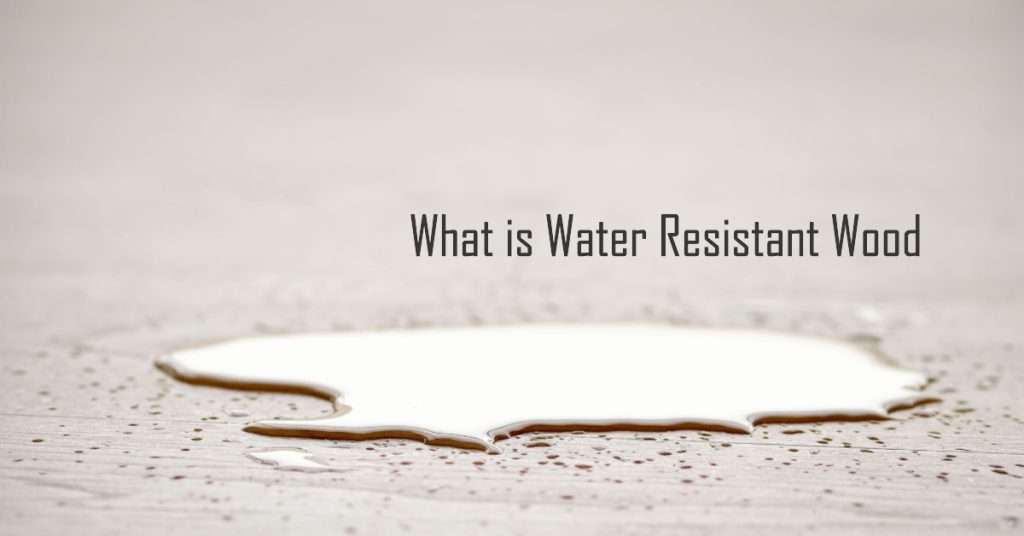
Water resistant wood refers to wood or timber that is somewhat or completely resistant to moisture, decay and rot. This type of timber will not start warping or cracking even when in constant contact with water.
It can be of two types – naturally water resistant and made-made water resistant wood.
Man-made water-resistant woods can be further divided into solid woods that have been finished to make them water-resistant and engineered/manufactured woods that have been made to be resistant to moisture.
Water Resistant Vs Waterproof Timber
When purchasing wood for your next outdoor project, you must also be aware of the difference between waterproof wood and water-resistant wood.
In theory, a waterproof material is something which is completely resistant to water or will not let moisture pass through its surface. No natural wood is 100% waterproof. Most woods that are sold as waterproof are only water-resistant, which means they are resistant to moisture but will absorb some moisture if constantly exposed to it.
However, 100% waterproof woods are also available. These are made by sealing the wood surface with a waterproofing element such as linseed oil or waterproofing stain to make it completely resistant to water.
Top Types & Species of Naturally Water Resistant Wood
There are many solid woods that have a good natural resistance to water, decay and rot along with excellent dimensional stability which makes them resistant to shrinking and expanding due to water.
If you are looking to buy water resistant wood in the UK or any country in Europe, Asia, Australia, or the Middle East, White Knight Consulting Ltd has a wonderful collection of water-resistant timber with the option of doorstep delivery anywhere in the world. Check it out now.
African Hardwoods (Iroko)
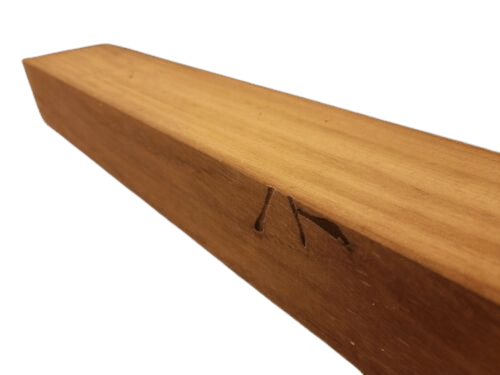
Many African hardwood species, including Iroko, have a good natural resistance to moisture, which makes them suitable for a range of outdoor applications including decking, cladding and outdoor furniture.
Iroko is particularly famous for its high durability in terms of resistance to water damage, swelling, shrinking, cracking and warping. It is often used as a cheaper alternative to teak for outdoor applications including decking, boatbuilding, fencing, flooring and outdoor furniture.
Many other species of African hardwoods have good durability against moisture and decay. These include Afromosia, Wenge, Zebrano, etc.
Oak
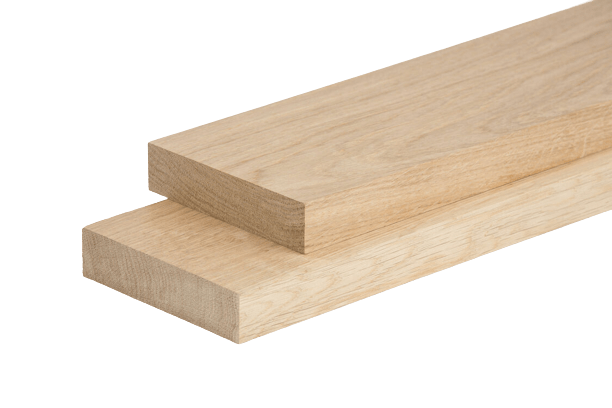
Though not all hardwoods are durable in terms of water resistance, it is given that the harder & denser the wood, the less prone it will be to water damage.
Oak species are heavy and dense woods with an average dried weight ranging between 675kg/m³ – 755kg/m³. These woods are strong and have good resistance to water. They do not warp easily when in contact with moisture and are easy to stain.
European Oak and American White Oak are among the most popular choices of woodworkers for water-resistant flooring, decking, boat frames, and outdoor furniture and construction.
Ipe
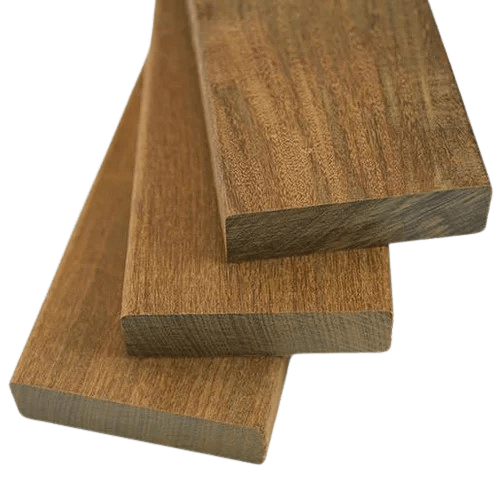
Ipe is one of the hardest woods in the wood and also has excellent resistance to weather and moisture.
Ipe is considered suitable for a variety of projects mainly due to its adaptability to various environments and resistance to weather. It is primarily used in construction, for building stairs, bridges, ceilings, doors, decks, railway sleepers, and other outdoor construction. It is not a particularly beautiful wood.
Western Red Cedar
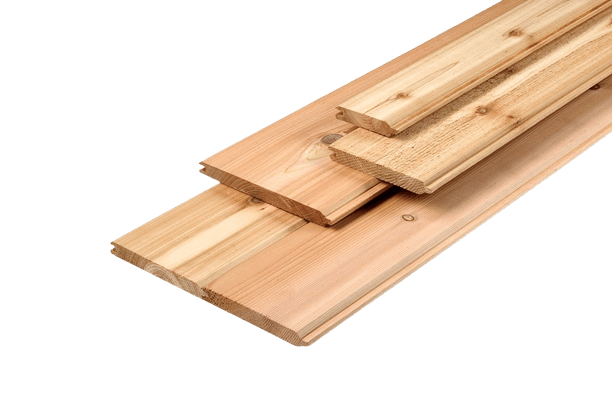
Among other things, western red cedar is famous for its exceptional durability in terms of resistance to decay. Found in Canada and the United States, this softwood is reddish to pinkish brown with darker streaks. It is not particularly hard or heavy but has excellent moisture resistance.
Western red cedar has a low shrinkage rating, as it doesn’t warp or crack easily even when in contact with water. The presence of natural oils also makes it somewhat immune to insects.
Yellow cedar is also a good option for people looking for a low-cost, durable softwood.
Teak
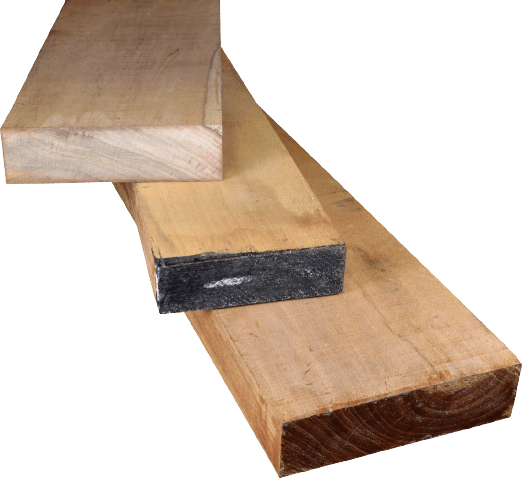
Teak is definitely one of the best hardwoods for durability against moisture and rot. Found in tropical regions of Africa, Latin America and parts of Asia, this hardwood is known for its amazing appearance and superb dimensional stability.
One of the best woods for outdoor applications, teak is immune to cracking, warping and splitting due to constant exposure to the sun or weather. It is also resistant to attack by insects and pests. The wood is commonly used for building high-end projects and in applications that require high quality, such as premium furniture items, flooring, stairs, and decks. It is more expensive than most other hardwoods and softwoods.
Cumaru
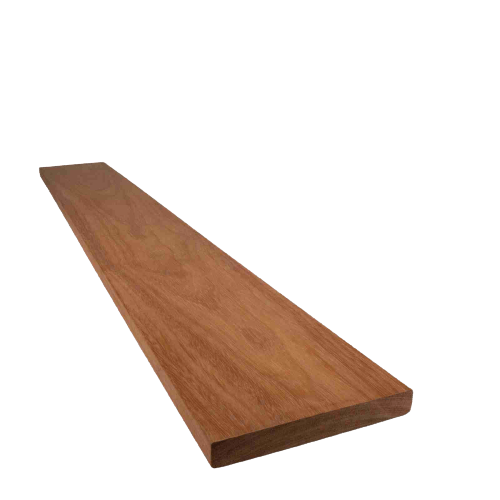
Cumaru is an American (Northern South America) hardwood famous for its outstanding durability and weathering properties. The wood is naturally immune to moisture and decay and also has good resistance to termites and borers.
Cumaru is a great choice for applications where the wood is constantly exposed to humidity, water or changing weather. Its common uses include outdoor construction, flooring, decks, furniture, pergolas, veneers, carpentry, etc. It can also be easily finished or painted to achieve a darker shade.
Maple
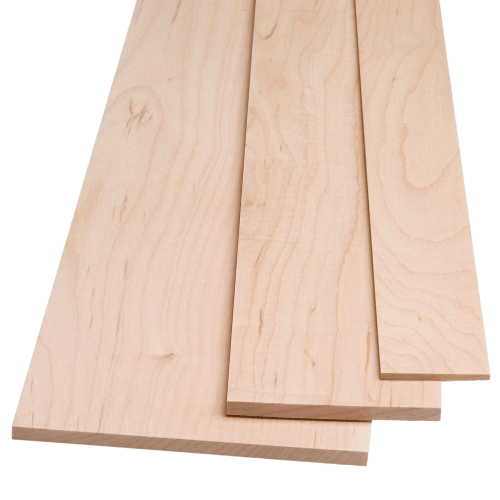
Maple has many varieties, all of which are broadly categorised into two – hard maple and soft maple.
Both types of maple wood are hard and strong. Maple is particularly known for its beautiful looks which allow it to be used in all kinds of indoor and outdoor applications. Maple is somewhat resistant to decay but it is prone to insects, which is why it must be treated first before outdoor use. It is widely used for flooring and furniture.
Other popular durable wood options include Douglas fir, Merbau, Cherry, Larch, and Walnut.
Many woods that are not naturally resistant to moisture can be made so through treatment. This involves treatment with heat and/or chemicals (oil, stain, finish, etc.). Here are some top types of treated water-immune wood:
Heat-Treated Ayous
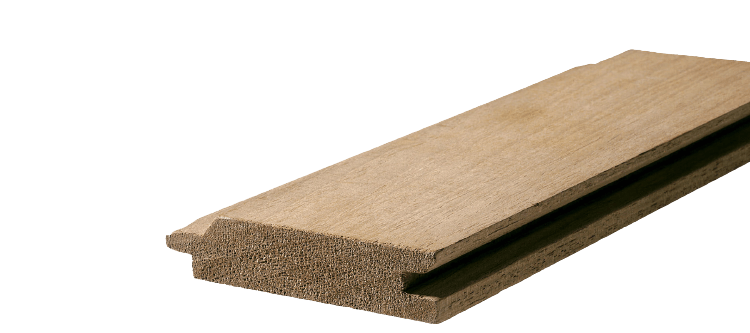
Ayous or Obeche is a tropical African hardwood that is characteristically soft and non-durable. It is not naturally immune to decay and also has poor resistance to insects.
Heat-treated Ayous, commonly known as thermo-Ayous is a durable and dimensionally stable wood, which is extensively used for outdoor applications including cladding.
Heat treatment not only improves the durability and insect resistance of wood but also makes it safer to work with by sterilising the timber to eliminate health risks.
Waterproofing Finish
Many times a waterproofing finish is all you need to make your wood resistant to moisture and decay. Finishing is applied not only to woods that are not naturally water-immune but also used to enhance the natural water resistance of many woods to ensure maximum protection when used outside.
Wood finishing refers to the process of applying a special finish or protection layer to enhance the strength and durability of wood. Some popular types of water-resistant wood finishes include linseed oil, varnish, hydrophobic finish, oil-based sealant, polyurethane, wood stain, and water-based finish.
Wood intended for indoor use is usually coated with wood oil to give it waterproof properties. The popular options include linseed oil, tug oil, and danish oil. These can be easily applied using a brush or roller to achieve the desired finish.
Need Help Selecting the Best Water Resistant Wood?
Woodworkers, architects, and customers looking for professional advice or help in selecting the best waterproof wood for a timber project can contact White Knight Consulting Ltd for wood consulting services or to buy top-quality wood timber at the best price in the market.
As a leading timber manufacturer, merchant and exporter, we deal in as many as 40 species of hardwoods and softwoods from around the world that you can now buy online with doorstep delivery to your location.
We offer a wide variety of water-resistance woods suitable for outdoor projects, such as outdoor furniture, boatbuilding, cladding, decking, and fencing. All our wood is sustainably-produced and sourced and locally processed at our UK mill by expert woodworkers to produce the best quality products for our customers worldwide.
Contact us to buy wood or discuss your timber requirements, however big or small.
